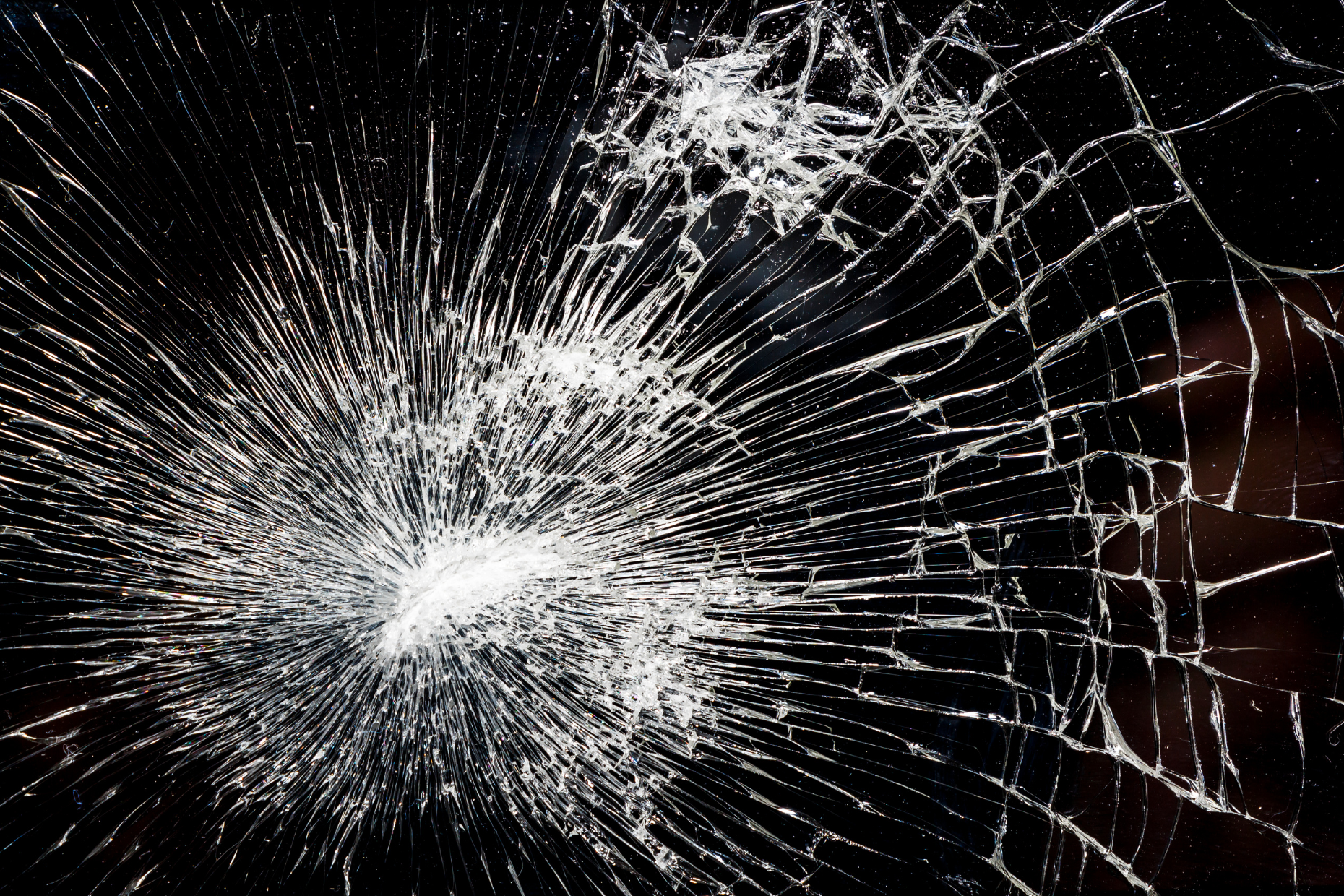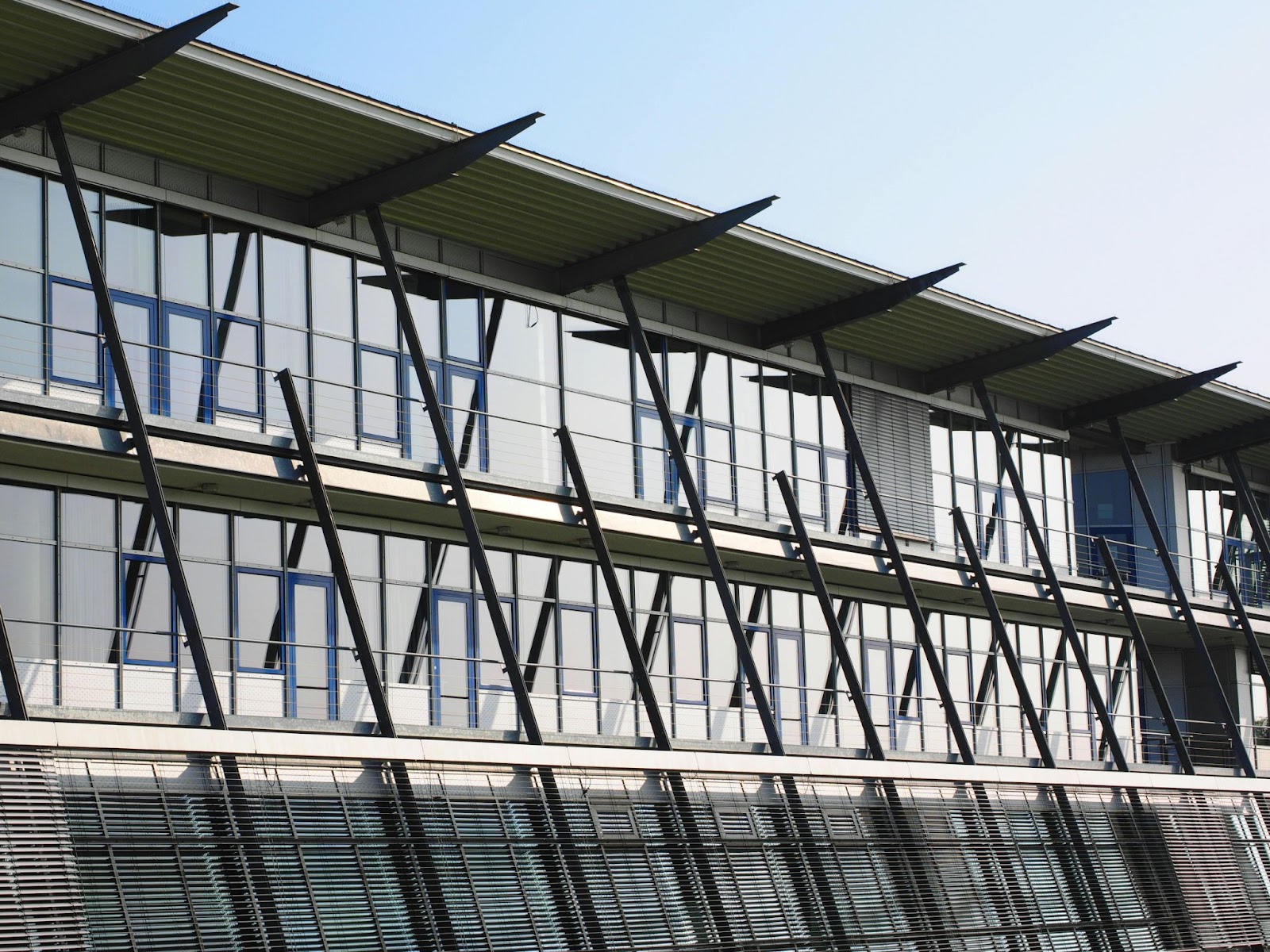What Is Bulletproof Glass Made Of: Innovations In Protection

Bulletproof glass is an essential component in keeping people safe and secure. It’s found in financial institutions, government buildings, and other areas where safety is paramount. But what exactly makes bulletproof glass so special? Here, we’ll take a look at the materials and technology behind bulletproof glass that make it such an effective security measure. We’ll also discuss some of the most common uses for this innovative product and how it can help safeguard your family or business.
History And Development Of Bulletproof Glass
Bulletproof glass originated in 1909, with the invention of laminated glass. Early models consisted of a sheet of cellulose nitrate, a type of plastic, holding two layers of glass together. This type of laminated glass was highly resistant to impact and provided much-needed protection against bullets and bombs. Eventually, other materials were used to form stronger layers that provided even greater protection than before.
These days, bulletproof glass typically consists of multiple layers, including polycarbonates or acrylics. These layers are combined to create powerful composite materials that can resist high-velocity impacts from bullets and other projectiles. Specialized coatings can also be applied to the surface of bulletproof glass for added durability and protection against scratches and other damage.
Types Of Bulletproof Glass
Bulletproof glass is available in several different types, depending on the level of protection required. Here are some of the most common types:
Laminated Glass Clad Polycarbonate
Laminated Glass Clad Polycarbonate is the most common type of bulletproof glass, and it consists of several layers of polycarbonate sandwiched between two or more layers of laminated glass of different thicknesses. These layers are combined to create a strong composite material that can protect from high-velocity impacts, with either exterior or interior coatings for added durability and protection. This type of bulletproof glass offers superior protection compared to just using one material alone due to its layered construction and the composite effect created by the combination of materials.
Laminated Polycarbonate
Laminated Polycarbonate is also a commonly used type of ballistic glass and it consists of multiple layers of polycarbonate sheets laminated together. This gives the user superior protection against bullets, blasts, and fragmentation. Its layered construction also gives it added durability, meaning that it can withstand multiple impacts without breaking or needing to be replaced. It has a 1.25′′ thickness, which is used only in the interior and comes with 72% light transmission.
Laminated Acrylic
Laminated Acrylic is also commonly used in ballistic glass and it consists of multiple sheets of acrylic laminated together. This gives the user superior protection against bullets, blasts, and fragmentation. It has the added advantage of being much lighter than Laminated Polycarbonate, making it easier to install and transport. Its layered thickness is 1.25 inches and it has 85% light transmission. It is also widely used in interior applications.
Composition Of Bulletproof Glass
The composition of bulletproof glass varies depending on the type. Here are some steps that are typically included in its composition:
Glass Layers
Bulletproof glass usually consists of multiple layers of glass with polycarbonate in between. This provides a protective barrier against bullets and fragmentation. It has different levels of resistance depending on the thickness and number of layers.
Interlayers
The multiple layers of glass and polymer materials are essential to the protection provided by bulletproof glass. The innermost layer is typically a thicker piece of polycarbonate or acrylic. This provides additional rigidity, strength, and shock-resistance to the glass. The outer layers are then constructed with various types of tempered glass, which provide an additional measure of protection against projectiles.
Additional Components
Depending on the level of protection desired, bulletproof glass may also include additional components, such as steel frames. The steel frames provide even more strength to the panel and add an extra layer of ballistic protection. These components can help make the window more resistant to large caliber firearms and other forms of ballistic attack.
How Does Bulletproof Glass Work?
Bulletproof glass works to absorb and disperse the energy of the projectile as it impacts the surface. The outer layer(s) of tempered glass absorb much of the initial impact, while polycarbonate layers provide additional support to dissipate energy throughout the panel. This helps to prevent penetration from a projectile, whether that is a bullet or another form of attack. Steel or wooden frames provide additional support for the panel, helping to contain any energy or particles that may escape. All of this makes bulletproof glass an incredibly effective form of protection against attack.
Levels Of Protection Offered By Bulletproof Glass
Bulletproof glass is typically graded according to the level of protection it offers against different threats.
- Level 1 – It is the most basic type of bulletproof glass, providing minimum protection against threats. It is 0.68 inches thick and able to resist three shots of a 9mm handgun at close range.
- Level 2 – It offer significantly more protection than Level 1, as it is around 0.95 inches thick and can resist 3 shots of .357 Magnum at close range.
- Level 3 – It is around 1.125 inches thick and able to resist 3 shots of .44 Magnum rounds at medium range.
- Level 4 – This type of bulletproof glass is the strongest, providing maximum protection against threats. It is typically used in banks, prisons, and other high security facilities where it offers protection against even .30-60 rifles at close range. It is 1.25 inches thick.
- Level 5 – It is around 1.375 inches thick and provides the ultimate in protection against ballistic threats that resist 1 shot of a .308 (7.62mm x 51).
- Level 7 – This is the highest level of protection available and is typically used against robbers. It can resist 5 shots of a 5.56mm round at close range and is around 1.94 inches thick.
- Level 8 – It is 2.4 inches thick and provides protection against armor-piercing rounds. It is designed to resist 5 shots of .308 Win (7.62mm x 51).
Applications Of Bulletproof Glass
There is diverse applications of bulletproof glass in various industries, such as law enforcement, commercial and residential use.
Security And Law Enforcement
Bulletproof glass is used in the security and law enforcement sectors for a number of reasons. One of the most common applications is in police stations, where bulletproof glass provides a barrier between suspects and police officers. It also ensures that criminals are protected from any gunfire that may occur inside the station while they are being processed.
Other places where bulletproof glass is often used include banks, as it helps to deter robberies by preventing thieves from accessing the building. Bulletproof glass can also be used in courthouses to prevent people from entering with weapons and endangering those inside.
Bulletproof glass can also be used in airports for additional safety purposes. It can help to keep travelers safe by providing a physical barrier between them and any attackers or potential weapons that might be present at the terminal.
Military And Defense
Bulletproof glass is also used in military and defense applications. It can be found in facilities such as armories, military bases, and government buildings. In addition to providing protection from outside threats, bulletproof glass also helps protect sensitive documents and other materials that may be stored in these areas. The glass can help prevent access to classified information, weapons, or other resources that should not fall into the wrong hands.
Commercial And Residential
Bulletproof glass can also offer protection in commercial and residential settings. Businesses may choose to install bulletproof glass to protect their employees, customers, and merchandise from potential harm. It can be used as a barrier to entry in high-security areas of businesses such as banks, jewelry stores, or other places that contain large amounts of cash or valuable items. In addition, homeowners may choose to install bulletproof windows or doors in their homes for additional safety purposes. Bulletproof glass can help provide security and privacy for homeowners while still allowing enough light into the home.
What Limitations And Considerations Need To Be Taken Into Account When Using Bulletproof Glass?
When using bulletproof glass, it is important to take into consideration the following factors:
Thickness And Weight
The thickness and weight of the glass should be appropriate for the type of protection that is desired. Depending on the level of security desired, the thickness and weight of the bulletproof glass will vary accordingly.
Durability
Bulletproof glass can be susceptible to damage over time, depending on its composition and how it is treated. By taking into account the durability of bulletproof glass and how it will hold up in different conditions, homeowners can ensure that their security is not compromised.
Cost
The cost of bulletproof glass is also an important factor to consider. The type of glass, its thickness, the size of the installation and any additional features can all influence the cost. For example, thicker glasses or those with more advanced coatings may be more expensive due to their increased security capabilities. Additionally, larger installations may require more labor costs, depending on the complexity of the installation.
Maintenance
Keep in mind that bulletproof glass requires regular maintenance to remain effective. Its coatings can wear down over time, so it is important to inspect the glass regularly and perform any necessary repairs or replacements. Additionally, you may need to check for damage caused by weather conditions or extreme temperatures. This will help keep your security system up-to-date and functioning properly.
Buy Now The Reliable Bulletproof Glass
If you are looking for a reliable and effective way to secure your home or business, bulletproof glass is an excellent choice. It offers superior protection against all sorts of threats and can be customized to suit any security need. Whether you need thin sheets of material or larger installations, there are options available to fit any budget at Liberty Shielding. Get a quote today and start securing your property.
FAQs
- What Types Of Projectiles Can Bulletproof Glass Stop?
Bulletproof glass can stop various projectiles, including handgun rounds (e.g., 9 mm,.357 Magnum,.44 Magnum), shotgun pellets, and some rifle rounds, depending on the specific level of protection.
- Is Bulletproof Glass Heavy And Difficult To Install?
Bulletproof glass can be heavier than regular glass, and its installation may require specialized expertise. Structural considerations should be taken into account during installation.
- What Is The Cost Of Bulletproof Glass?
The cost of bulletproof glass varies depending on factors such as the level of protection, size, thickness, and any additional features. It can range from hundreds to thousands of dollars per square foot.
- Can Bulletproof Glass Be Customized For Specific Needs?
Yes, bulletproof glass can often be customized in terms of size, shape, and design to meet the unique security requirements of different applications.
Explore More News

Fire Rated Glass for Aircraft Interiors: Challenges and Solutions
Embark on a journey to elevate aviation safety to new heights with Liberty Shielding’s pioneering innovation – fire rated glass…

Fire Resistant Glass: Key Features and Applications in Manufacturing
Step into the realm where security harmonizes with innovation. Unveil the extraordinary attributes of our fire-resistant glass, meticulously crafted to…

Bullet-Proof Windows: Balancing Safety and Aesthetics
Step into the future of unparalleled security with Bullet-Proof Windows from Liberty Shielding. As the industry leader, we redefine safety…
